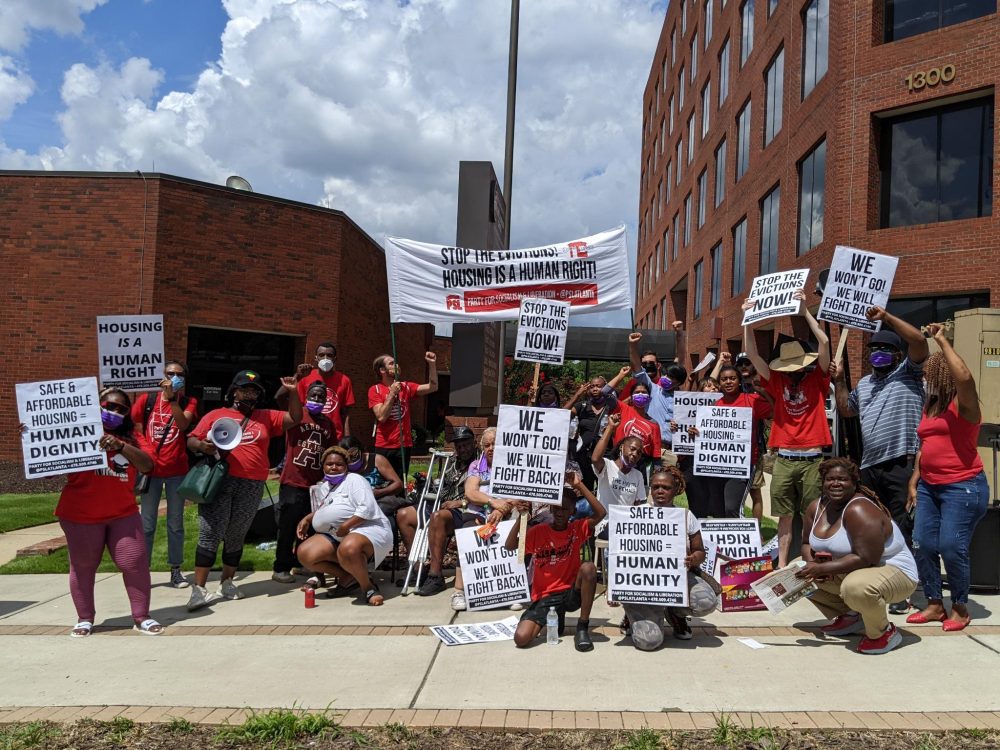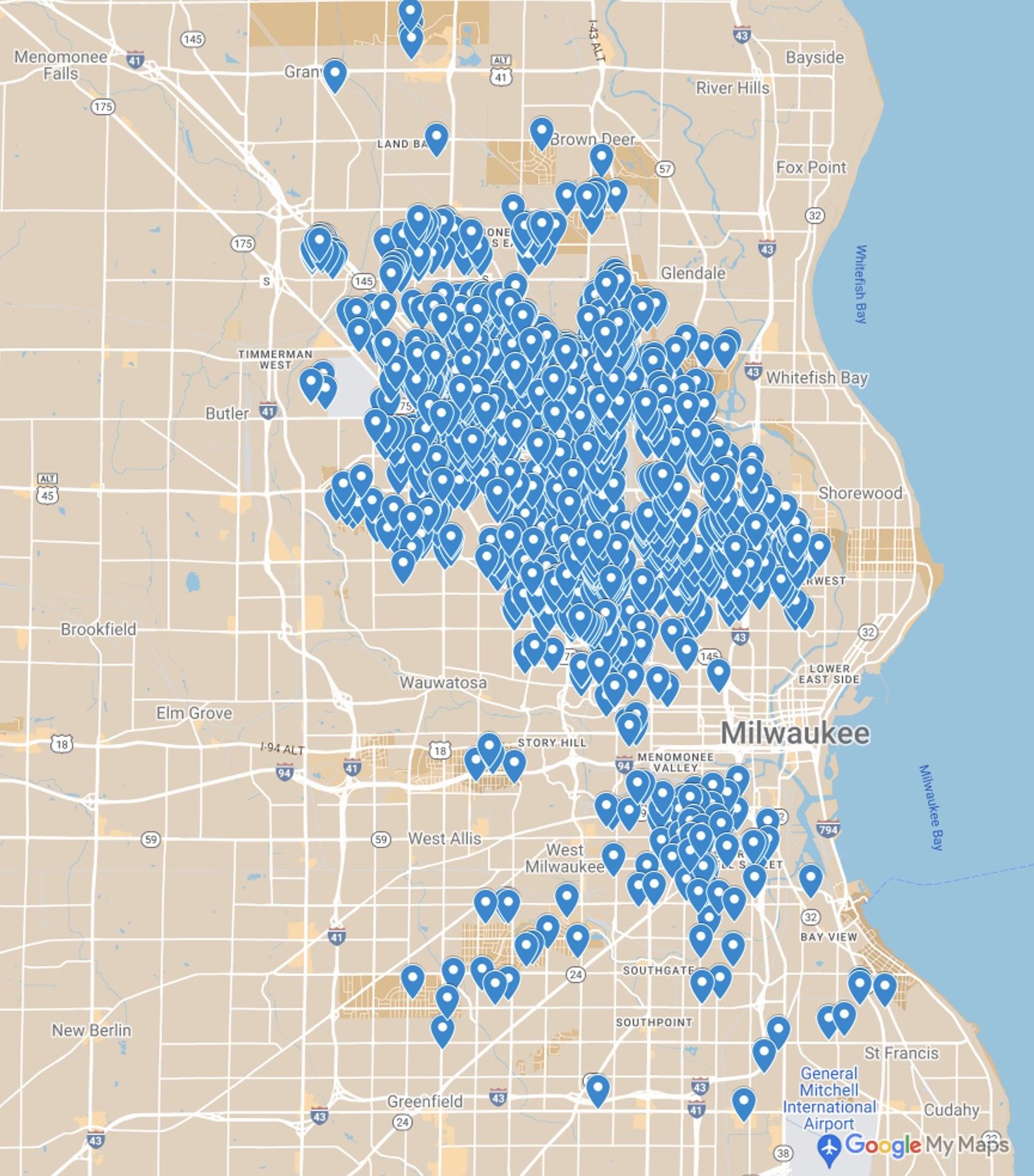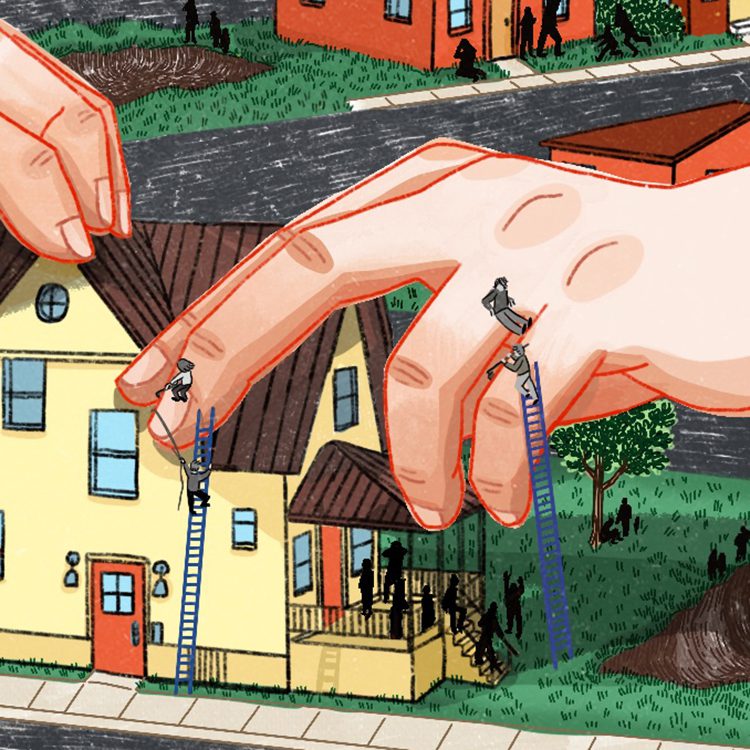This article is part of the Under the Lens series

By the end of the month, more than 200 residents who live at Forest at Columbia Apartments in Georgia are expected to lose their homes. The residents have recently formed a tenants association to fight back against the impending evictions, and to demand their homes be brought up to code. Above, tenants and members of the Atlanta branch of the Party for Socialism & Liberation rallied at the DeKalb County Commissioners office. Photo courtesy of the Atlanta branch of the Party for Socialism & Liberation
In early July, hundreds of residents who live in an apartment complex in Dekalb County, Georgia, received lease termination notices. Originally, they were given 30 days to pack up and find new homes, but the property management company later extended it to 60 days.
Given the housing market at the moment, that’s still far from enough time for these families to uproot their lives and locate new places that they can afford.
The management company’s reason for the lease terminations was that there were mold and pest problems in the occupied units, and some of the buildings were empty, according to reporting by a local TV station. Residents had complained about the problems, but surely they didn’t expect to be kicked out as a result.
The residents told the TV station that they hoped some of the vacant buildings could be renovated first and then serve as places for them to stay while other buildings had the necessary work done. Phased renovations like this are not uncommon in public housing redevelopment projects.
But that is not what the owner wants to do.
This not being a publicly supported or subsidized complex, and Georgia tenant protections being weak, the residents have no right to return, or to relocation assistance. The tenants recently formed an association to fight the mass evictions, but the odds still seem quite high that the complex will be fixed up and then pitched to those with higher incomes. After all, Meridian Management Group, the property management company overseeing this development for its owners describes itself as “dedicated to maximizing our clients’ investment returns . . . able to provide high-end, affordable, turn-key service for individual or group investment companies . . . and most importantly, maintain[ing] a sharp focus on investor return on investment.”
https://twitter.com/PSLAtlanta/status/1554971698176397312
Nowhere in the company’s LinkedIn page or website does the experience of tenants or residents come up. Nowhere do they acknowledge a need to balance “return on investment” with provision of safe, decent, and stable places to live. Nowhere is there an acknowledgment that turning tenants out of their homes on short notice will have long-term negative ripple effects on their well-being and that of their families and communities.
Meridian and its client property owners are one example of what’s increasingly come to be called the “financialization” of housing—the treatment of housing as an instrument for financial gain first, and a home a distant second. Financialization is an incredibly wonky sounding word, so we wanted to take a little time to explore what people mean when they say it (spoiler alert: people don’t always agree), some of its causes and effects, and what housing advocates are trying to do about it.
The mainstream media has discovered and is finally covering the rapidly increasing purchase of housing—both single family and multi-family—by corporate owners. That reality is the backdrop to our latest Under the Lens series, Homes or Cash Cows, which focuses on the context in which that is happening. We will continue going forward to look at specific instances of such purchases and explore their implications.
|
|





Comments